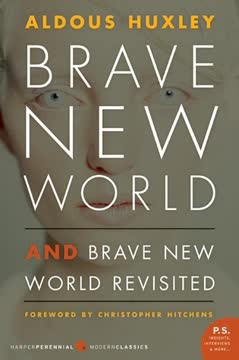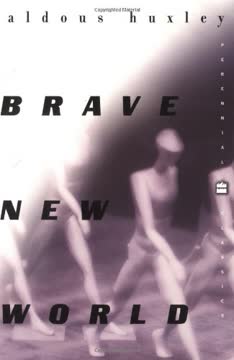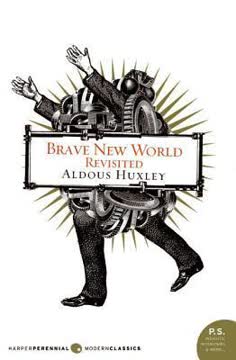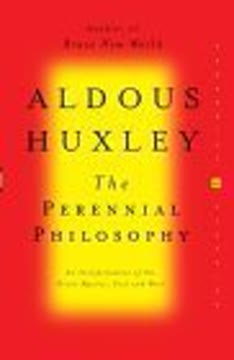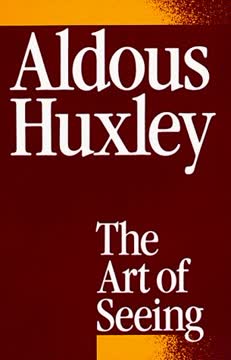Plot Summary
Overpopulation's Looming Threat
In "Brave New World Revisited," Huxley revisits his dystopian vision, alarmed by the rapid approach of the societal nightmare he once imagined. Overpopulation, he argues, is a critical issue, leading to resource scarcity and increased governmental control. The unchecked growth of human numbers threatens individual freedoms, as societies become more centralized and authoritarian to manage the chaos. Huxley warns that without addressing this biological crisis, the world will inevitably slide into a totalitarian state where personal liberties are sacrificed for the illusion of order and stability.
Conditioning and Control
Huxley explores the mechanisms of control in a future society, where conditioning and genetic manipulation replace free will. Through systematic reinforcement and psychological manipulation, individuals are molded to fit societal roles, ensuring compliance and stability. This control is achieved not through overt brutality but through subtle conditioning, making people content with their predetermined lives. The loss of individuality and personal freedom is masked by the promise of happiness and efficiency, creating a society where dissent is unthinkable and conformity is the norm.
The Illusion of Freedom
Huxley examines the erosion of democratic freedoms, as technological and organizational advancements concentrate power in the hands of a few. The illusion of freedom persists, but true autonomy is undermined by the manipulation of thoughts and behaviors. The media and propaganda shape public opinion, creating a society where individuals believe they are free while being subtly controlled. Huxley warns that without vigilance, democracy will become a hollow shell, with citizens unknowingly complicit in their own subjugation.
Propaganda's Subtle Grip
Huxley delves into the power of propaganda, which subtly influences individuals through subconscious means. Techniques like subliminal messaging and emotional manipulation bypass rational thought, embedding ideas and desires without conscious awareness. This form of control is more insidious than overt coercion, as it shapes beliefs and behaviors from within. Huxley cautions that the unchecked use of propaganda threatens the very foundation of free thought and democratic society, as individuals become unwitting participants in their own manipulation.
The Science of Manipulation
Huxley explores the scientific advancements in mind control, where psychological techniques are used to enforce compliance and maintain order. Methods like brainwashing and hypnopaedia exploit human suggestibility, conditioning individuals to accept authority without question. These techniques are refined and applied systematically, creating a populace that is both docile and productive. Huxley warns that as these methods become more sophisticated, the potential for abuse increases, threatening the very essence of human freedom and individuality.
Chemical Compliance
In Huxley's vision, chemical substances play a crucial role in maintaining societal stability. Drugs like soma provide an escape from reality, offering artificial happiness and contentment. These substances are used to pacify the population, preventing unrest and dissent. The reliance on chemical compliance highlights the loss of genuine human experience and emotion, as individuals are numbed into submission. Huxley warns that the widespread use of such drugs could lead to a society where true freedom and individuality are sacrificed for the sake of superficial harmony.
Hypnopaedia's Influence
Huxley examines the use of hypnopaedia, or sleep-teaching, as a tool for shaping beliefs and behaviors. By implanting suggestions during sleep, individuals are conditioned to accept societal norms and values without question. This method of indoctrination is subtle yet powerful, as it bypasses conscious resistance and embeds ideas directly into the subconscious. Huxley warns that the use of hypnopaedia could lead to a society where free thought is stifled, and individuals are molded to fit the needs of the state.
Education for Autonomy
Huxley advocates for an education system that fosters critical thinking and autonomy, equipping individuals to resist manipulation and control. By teaching people to analyze and question information, they can become active participants in their own governance. Education should emphasize the importance of individuality and freedom, countering the forces that seek to homogenize and control. Huxley argues that only through such education can society hope to preserve the values of democracy and personal liberty in the face of growing threats.
The Future of Freedom
Huxley concludes with a call to action, urging society to recognize and address the threats to freedom. He emphasizes the need for a multifaceted approach, combining education, legislation, and social reform to counteract the forces of overpopulation, over-organization, and technological manipulation. Huxley warns that without concerted effort, the future will be one of increasing control and diminishing freedom. He calls for a renewed commitment to the principles of democracy and individual rights, to ensure that the human spirit remains free and unencumbered.
Characters
Bernard Marx
Bernard Marx is an Alpha Plus who feels alienated in the highly controlled society. His physical inadequacies and desire for individuality set him apart from his peers. Bernard's journey reflects the struggle for personal freedom in a world that values conformity. His character highlights the tension between societal expectations and personal desires, ultimately leading to his downfall as he fails to reconcile these opposing forces.
Lenina Crowne
Lenina Crowne is a Beta worker who embodies the values of the World State. She is conditioned to seek pleasure and avoid discomfort, yet she experiences moments of genuine emotion and connection. Lenina's interactions with Bernard and John reveal her internal conflict between societal conditioning and her innate human desires. Her character illustrates the challenges of maintaining individuality in a conformist society.
John "The Savage"
John, known as "The Savage," is born outside the World State and raised on a Savage Reservation. His exposure to Shakespeare and traditional values shapes his worldview, making him a stark contrast to the conditioned citizens. John's struggle to reconcile his beliefs with the reality of the World State highlights the clash between natural human instincts and artificial societal constructs. His tragic fate underscores the consequences of a society that suppresses individuality.
Mustapha Mond
Mustapha Mond is one of the World Controllers, responsible for maintaining societal stability. He is a complex character who understands the sacrifices made for the sake of order. Mond's knowledge of history and literature gives him a unique perspective on the value of individuality and freedom. His character represents the tension between control and the pursuit of truth, as he grapples with the ethical implications of his role.
Helmholtz Watson
Helmholtz Watson is an Alpha Plus who excels in his work but feels unfulfilled by the limitations of the World State. His desire for creative expression and meaningful connections sets him apart from his peers. Helmholtz's friendship with Bernard and John highlights his struggle to find purpose in a society that stifles individuality. His character embodies the conflict between societal expectations and personal fulfillment.
Linda
Linda is John's mother, who was once a Beta worker in the World State. After being stranded on the Savage Reservation, she becomes an outcast, longing for the comforts of her former life. Linda's character illustrates the consequences of societal rejection and the impact of conditioning on personal identity. Her tragic end serves as a reminder of the harsh realities faced by those who do not conform.
The Director
The Director of Hatcheries and Conditioning is a high-ranking official responsible for maintaining the World State's population. He represents the authority and control exerted by the state over its citizens. The Director's interactions with Bernard and John reveal the rigid enforcement of societal norms and the consequences of deviating from them. His character highlights the power dynamics within the World State and the lengths to which the government will go to maintain order.
Plot Devices
Conditioning and Hypnopaedia
Conditioning and hypnopaedia are central to the World State's control over its citizens. From birth, individuals are subjected to psychological conditioning that shapes their beliefs and behaviors. Hypnopaedia, or sleep-teaching, reinforces societal norms and values, ensuring compliance and stability. These techniques create a populace that is content with their predetermined roles, masking the loss of individuality and freedom. Huxley uses these devices to explore the ethical implications of manipulating human behavior for the sake of societal order.
Soma
Soma is a drug used to maintain societal stability by providing artificial happiness and contentment. It serves as a tool for pacifying the population, preventing unrest and dissent. Soma's widespread use highlights the loss of genuine human experience and emotion, as individuals are numbed into submission. Huxley uses soma to illustrate the dangers of relying on chemical compliance to control a society, raising questions about the value of true freedom and individuality.
Propaganda and Subliminal Messaging
Propaganda and subliminal messaging are used to subtly influence individuals' thoughts and behaviors. These techniques bypass rational thought, embedding ideas and desires without conscious awareness. Huxley explores the power of propaganda to shape public opinion and maintain control, warning of the threat it poses to free thought and democratic society. The use of these devices underscores the insidious nature of manipulation and the importance of vigilance in preserving individual autonomy.
Analysis
"Brave New World Revisited" serves as a cautionary tale about the dangers of unchecked technological and societal advancements. Huxley's exploration of overpopulation, conditioning, and propaganda highlights the potential loss of individuality and freedom in the pursuit of stability and order. His warnings about the erosion of democratic values and the manipulation of human behavior remain relevant in today's world, where technological advancements continue to shape society. Huxley emphasizes the importance of education, critical thinking, and vigilance in preserving the values of democracy and personal liberty. His work challenges readers to consider the ethical implications of sacrificing individuality for the sake of societal harmony, urging a renewed commitment to the principles of freedom and autonomy.
Last updated:
FAQ
0. Synopsis & Basic Details
What is Brave New World and Brave New World Revisited about?
- Dystopian Social Engineering: Brave New World (1932) depicts a future World State where humanity is genetically engineered, conditioned, and drugged for perpetual happiness and social stability, eliminating individuality, art, and genuine emotion. It explores a society that has sacrificed freedom and truth for comfort and control.
- Author's Self-Correction: Brave New World Revisited (1958) is Aldous Huxley's non-fiction re-evaluation of his earlier novel, where he argues that the dystopian future he imagined is arriving much sooner and through different, more insidious means than he initially predicted. He analyzes real-world trends in overpopulation, propaganda, and psychological manipulation, suggesting that control through pleasure and subtle persuasion is more likely than overt terror.
- Critique of Modernity's Trajectory: Both books collectively serve as a profound critique of unchecked technological progress, the erosion of individual liberty, and the dangers of mass society, warning against the seductive allure of a perfectly ordered, yet dehumanizing, existence.
Why should I read Brave New World and Brave New World Revisited?
- Prescient Societal Warnings: Reading these works offers a chillingly accurate foresight into contemporary issues like mass consumerism, genetic engineering debates, the pervasive influence of media and advertising, and the subtle erosion of democratic values. Huxley's insights into "control through the reinforcement of desirable behavior by rewards" (BNWR, Ch. 1) resonate deeply with modern social dynamics.
- Deep Dive into Human Nature: They provoke profound questions about the nature of happiness, freedom, and suffering, challenging readers to consider what truly constitutes a fulfilling human life versus a merely comfortable one. The contrast between John's desire for "God, poetry, real danger, freedom, goodness, sin" and Mond's "happiness" (BNW) forces a re-evaluation of core human values.
- Understanding Persuasion Techniques: Brave New World Revisited provides an invaluable, detailed analysis of the psychological and technological methods used for mass persuasion, from Pavlovian conditioning to subliminal messaging, offering a critical lens through which to view modern politics and advertising. Huxley explicitly states, "The art of mind-control is in process of becoming a science" (BNWR, Ch. 5), making the book a manual for understanding manipulation.
What is the background of Brave New World and Brave New World Revisited?
- Post-Industrial Revolution Anxiety: Brave New World was written in 1931, amidst rapid industrialization, the rise of consumer culture (influenced by figures like Henry Ford), and emerging psychological theories (Freud, Pavlov). Huxley extrapolates these trends to imagine a society where efficiency and stability are paramount, reflecting anxieties about dehumanization and loss of traditional values.
- Cold War and Totalitarianism: Brave New World Revisited, published in 1958, was written in the shadow of World War II, the rise of totalitarian regimes (Nazism, Stalinism), and the Cold War. Huxley explicitly contrasts his vision with Orwell's Nineteen Eighty-Four, arguing that "the odds were more in favor of something like Brave New World than of something like 1984" (BNWR, Ch. 1), emphasizing control through pleasure rather than pain.
- Scientific and Philosophical Influences: Both works are deeply informed by Huxley's extensive knowledge of biology, psychology, and philosophy. Brave New World Revisited directly references Pavlov's experiments on conditioned reflexes, Freud's theories of the unconscious, and the emerging field of psychopharmacology, grounding his fictional predictions in contemporary scientific understanding.
What are the most memorable quotes in Brave New World and Brave New World Revisited?
- "Community, Identity, Stability.": This World State motto, repeated throughout Brave New World, encapsulates the core values of the dystopian society, highlighting the sacrifice of individual freedom for collective order. It's the foundational principle of their social engineering.
- "But I don't want comfort. I want God, I want poetry, I want real danger, I want freedom, I want goodness. I want sin.": John the Savage's impassioned declaration in Brave New World directly challenges Mustapha Mond's utilitarian vision of happiness, serving as the novel's central philosophical conflict and a powerful articulation of the human desire for a full, complex existence.
- "The prophecies made in 1931 are coming true much sooner than I thought they would.": From Brave New World Revisited, this opening statement immediately establishes the urgency and alarm that prompted Huxley to revisit his earlier work, underscoring the accelerating pace of societal changes he observed. It highlights the book's role as a direct warning.
What writing style, narrative choices, and literary techniques does Aldous Huxley use?
- Satirical and Didactic Tone: Huxley employs a sharp, often ironic, and highly intellectual tone, particularly in Brave New World, to satirize the absurdities and dangers of a technologically advanced, pleasure-driven society. In Brave New World Revisited, the tone shifts to a more direct, analytical, and urgent didacticism, as he explicitly warns readers about real-world threats.
- Juxtaposition and Contrast: A key narrative choice in Brave New World is the stark contrast between the World State and the Savage Reservation, allowing Huxley to highlight the artificiality and moral compromises of the "civilized" world against the raw, often brutal, but authentic human experience. This technique extends to character pairings like Bernard and Helmholtz, or John and Lenina.
- Expository and Argumentative Prose: In Brave New World Revisited, Huxley adopts a non-fiction, essayistic style, meticulously presenting evidence and logical arguments to support his claims about societal trends. He uses historical examples (Hitler, Stalin), scientific research (Pavlov, Freud), and contemporary observations to build a compelling case, making the book a powerful piece of persuasive writing.
1. Hidden Details & Subtle Connections
What are some minor details that add significant meaning?
- The "T" Symbolism: The World State replaces the Christian cross with the "T" symbol, representing Henry Ford's Model T. This seemingly minor detail subtly underscores the new religion of the World State: industrial efficiency, mass production, and technological worship, where Ford is revered as a deity.
- The "Feelies" as Sensory Overload: Beyond mere entertainment, the "feelies" are a subtle mechanism of control. They provide such overwhelming, immediate sensory gratification that they dull the capacity for deeper thought, critical analysis, or genuine emotional engagement, effectively preventing dissent by satiating the senses.
- The "A.F." Dating System: The calendar system "After Ford" (A.F.) is not just a nod to Henry Ford but also subtly implies "After Freud," given the World State's reliance on psychological conditioning and the manipulation of subconscious desires. This dual meaning highlights the scientific and psychological foundations of their control.
What are some subtle foreshadowing and callbacks?
- Bernard's Physical Anomaly: Bernard Marx's slightly smaller stature and non-conformist tendencies are subtly hinted at early on as a "defect" in his conditioning, foreshadowing his eventual alienation and inability to fully integrate into the World State's rigid social structure. This physical difference mirrors his psychological divergence.
- Mond's Forbidden Books: Mustapha Mond's private collection of banned books, including Shakespeare and religious texts, subtly foreshadows his deeper understanding of the World State's sacrifices and the intellectual arguments he later presents to John. It reveals his own suppressed intellectual curiosity and the knowledge he guards.
- The Lighthouse's Isolation: The lighthouse where John retreats at the end of Brave New World is a callback to his desire for purity and isolation from the World State's corruption. Its remote, self-contained nature symbolizes his desperate attempt to create a space for authentic experience, free from the pervasive influence of the "civilized" world.
What are some unexpected character connections?
- Helmholtz and John's Shared Alienation: While seemingly disparate—Helmholtz, the intellectual Alpha Plus, and John, the "savage"—their connection lies in a shared, profound sense of alienation and a yearning for something "more" than their respective societies offer. Helmholtz's struggle to express himself creatively mirrors John's struggle to find a place for his values, forming an unexpected intellectual and emotional bond.
- Mond's Past as a Scientist: Mustapha Mond's revelation that he was once a promising young scientist who chose to become a World Controller rather than be exiled reveals an unexpected personal sacrifice. This connection to his past explains his deep understanding of both the benefits and costs of the World State's system, making him a more complex antagonist than a mere power-hungry dictator.
- Fanny Crowne's Unwitting Conformity: Lenina's friend, Fanny, serves as an unexpected mirror to Lenina's own conditioning. Her constant, uncritical adherence to World State norms, particularly regarding promiscuity and soma use, highlights the pervasive nature of the conditioning and the difficulty of genuine individual thought, even for seemingly minor characters.
Who are the most significant supporting characters?
- Helmholtz Watson: He is crucial as Bernard's intellectual foil and John's confidant, representing the inherent human need for creative expression and deeper meaning that even the World State's conditioning cannot entirely suppress. His articulate dissatisfaction provides a powerful internal critique of the system.
- The Director (Thomas): Beyond his role as an authority figure, the Director's personal history with Linda and John is a pivotal plot device that exposes the hypocrisy and fragility of the World State's carefully constructed facade. His public humiliation by John reveals the vulnerability of the system to genuine human emotion and past transgressions.
- Fanny Crowne: While seemingly a minor character, Fanny serves as the quintessential example of a perfectly conditioned World State citizen. Her unwavering adherence to societal norms and her inability to comprehend Bernard or Lenina's deviations highlight the success of the conditioning process and the profound lack of individuality in the society.
2. Psychological, Emotional, & Relational Analysis
What are some unspoken motivations of the characters?
- Bernard's Quest for Acceptance: Beyond his stated desire for individuality, Bernard Marx's deeper, unspoken motivation is a desperate craving for acceptance and validation, particularly from those he perceives as superior or more "normal." His initial rebellion is often a performative act, seeking attention rather than genuine revolution, which ultimately leads to his downfall when he fails to gain the desired social capital.
- Lenina's Fear of Isolation: While conditioned for promiscuity and superficial happiness, Lenina's unspoken motivation for clinging to Bernard and later being drawn to John is a subconscious fear of true isolation and emotional emptiness. Her conditioning makes deep connection difficult, but her human instincts still prompt a search for something more meaningful than casual encounters.
- Mond's Burden of Knowledge: Mustapha Mond's unspoken motivation is the immense burden of his knowledge and the loneliness of his position. He understands the truth and beauty of the old world but believes humanity is better off without it, making his "happiness" a calculated, almost tragic, choice for the greater good of stability. He carries the weight of a decision he believes is necessary but personally costly.
What psychological complexities do the characters exhibit?
- The Paradox of Conditioned Happiness: The World State citizens, particularly Lenina, exhibit the psychological complexity of being genuinely happy within their conditioned existence, yet occasionally experiencing vague feelings of unease or dissatisfaction that they cannot articulate. This highlights the inherent human need for something beyond mere pleasure, even when suppressed.
- John's Internalized Conflict: John the Savage embodies profound psychological complexity through his struggle to reconcile his Shakespearean ideals of love, heroism, and suffering with the World State's reality of superficiality and instant gratification. His internal conflict leads to extreme emotional swings, from idealistic hope to violent despair, as he grapples with an irreconcilable world.
- Helmholtz's Creative Frustration: Helmholtz Watson's psychological complexity stems from his innate creative genius being stifled by a society that values only functional, unchallenging art. His "feeling that he had something important to say" but "no means of saying it" (BNW) illustrates the profound psychological toll of suppressed artistic and intellectual ambition, leading to a deep, existential frustration.
What are the major emotional turning points?
- Linda's Return and Death: Linda's reintroduction to the World State and her subsequent death are major emotional turning points, particularly for John. Her physical deterioration and the World State's indifferent treatment of her expose the brutal reality behind their "happiness," shattering John's idealized view of the "Other Place" and fueling his rage.
- The Solidarity Service: Bernard's discomfort and inability to fully participate in the Solidarity Service, a ritual designed to induce collective euphoria, mark a significant emotional turning point for him. It highlights his fundamental inability to achieve the prescribed "oneness" and reinforces his alienation, despite his efforts to conform.
- John's Confrontation with Mond: The extended philosophical debate between John and Mustapha Mond is a crucial emotional turning point, as it forces John to articulate his values and confront the World Controller's cold, logical defense of the World State. This intellectual clash is deeply emotional, as it represents the final, irreconcilable divide between their worldviews.
How do relationship dynamics evolve?
- Bernard and Lenina's Failed Connection: Their relationship evolves from Bernard's hopeful, yet awkward, pursuit to a complete breakdown, revealing the incompatibility between his yearning for deeper connection and Lenina's conditioned inability to form one. Lenina's simple desire for "fun" clashes with Bernard's complex anxieties, highlighting the World State's success in preventing genuine intimacy.
- John and Lenina's Tragic Misunderstanding: The dynamic between John and Lenina tragically devolves from mutual fascination to profound misunderstanding. John's romantic, Shakespearean ideals of love are utterly incompatible with Lenina's conditioned promiscuity, leading to his violent rejection of her and underscoring the chasm between their two worlds.
- Bernard and Helmholtz's Shifting Alliance: Their friendship, initially based on shared intellectual dissatisfaction, evolves as Helmholtz finds a more profound connection with John's raw emotionality and artistic passion. Bernard's jealousy and self-pity ultimately strain this bond, revealing his superficiality compared to Helmholtz's genuine search for meaning.
4. Interpretation & Debate
Which parts of the story remain ambiguous or open-ended?
- The True Nature of Mond's "Happiness": While Mond defends the World State's system as providing universal happiness, the ambiguity lies in whether he himself is truly happy or merely resigned. His intellectual capacity and knowledge of the past suggest a deeper, perhaps melancholic, understanding of what has been lost, leaving his personal state of contentment open to interpretation.
- The Fate of the Exiles: The novel leaves the ultimate fate of Bernard and Helmholtz on the islands ambiguous. While presented as a form of "freedom" for intellectuals, it's unclear if they truly find fulfillment or merely a different form of controlled existence, raising questions about the possibility of genuine autonomy even outside the World State.
- The World State's Long-Term Sustainability: Despite Mond's assurances of stability, the novel subtly hints at the inherent fragility of a society built on suppression of fundamental human drives. The occasional "rebellions" (like John's riot) and the need for constant conditioning suggest that the system, while robust, might not be eternally impervious to the unpredictable nature of humanity.
What are some debatable, controversial scenes or moments in Brave New World and Brave New World Revisited?
- The Orgy-Porgy Scene: This scene is highly controversial for its depiction of a ritualistic, drug-induced sexual free-for-all, which serves as a form of social cohesion and emotional release in the World State. It sparks debate about the nature of spirituality, community, and the ethical implications of using pleasure as a tool for control, blurring the lines between sacred and profane.
- Mond's Justification of Suffering: Mustapha Mond's argument that suffering, art, and deep emotion are incompatible with stability and happiness is a central controversial point. He asserts that "You can't make omelettes without breaking eggs" (BNW), forcing readers to debate whether the elimination of pain justifies the suppression of profound human experience and the denial of truth.
- Huxley's "Dodo" Analogy in BNWR: In Brave New World Revisited, Huxley's analogy of humans as "dodos" who "will soon renounce the privilege of flight and remain forever grounded" if "bread is supplied regularly and copiously" (BNWR, Ch. 12) is controversial. It suggests a pessimistic view of human nature, implying that most people would willingly trade freedom for material comfort, sparking debate about inherent human resilience and the capacity for self-governance.
Brave New World and Brave New World Revisited Ending Explained: How It Ends & What It Means
- John's Tragic Suicide: The ending of Brave New World sees John the Savage, overwhelmed by the World State's pervasive influence and his own inability to reconcile his ideals with its reality, retreat to a lighthouse and engage in self-flagellation, ultimately hanging himself. This act is a desperate, final assertion of his individual will and a rejection of a world that offers no space for his values.
- The Unbearable Weight of Freedom: John's suicide signifies the tragic impossibility of true freedom and authentic human experience in a society designed to eliminate both. His death is not a failure of his character but a testament to the World State's absolute success in creating an environment where genuine individuality and the capacity for suffering (and thus, profound joy) are rendered obsolete and unbearable. It highlights the "insupportable" nature of freedom for those unequipped for it, as Mond suggests.
- A Bleak Prophecy Reinforced: Brave New World Revisited reinforces the bleakness of the novel's ending by suggesting that the forces leading to such a controlled society are not only real but accelerating. Huxley warns that "a thoroughly scientific dictatorship should ever be overthrown" (BNWR, Ch. 12), implying that John's struggle and ultimate demise are not just a fictional tragedy but a chilling premonition of humanity's potential future if current trends continue unchecked.
Review Summary
Brave New World received mixed reviews. Many praised its prophetic vision of a dystopian future, exploring themes of social control, technology, and loss of individuality. Readers found it thought-provoking and disturbingly relevant to modern society. Some criticized underdeveloped characters and a weak plot. The novel's exploration of happiness versus freedom resonated with many. Huxley's accompanying essay, "Brave New World Revisited," provided additional insights and was generally well-received. Overall, the book is considered a classic of dystopian literature, alongside works by Orwell and Bradbury.
Similar Books
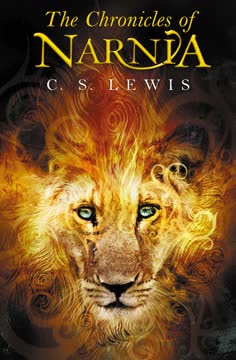
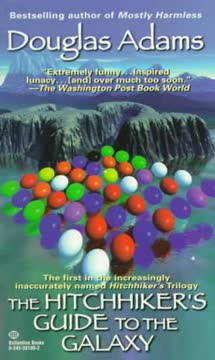
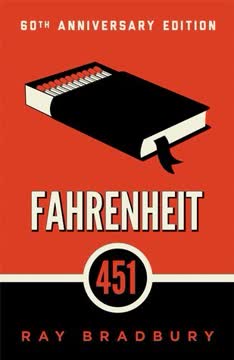
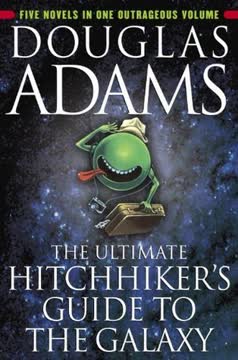
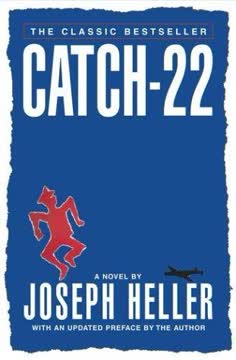
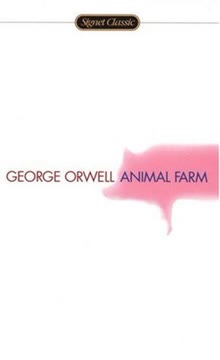

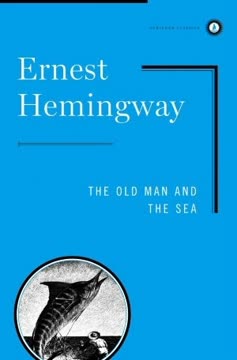
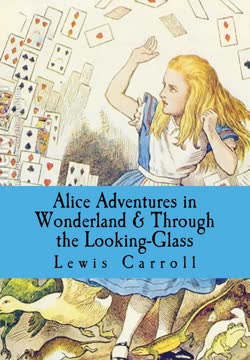
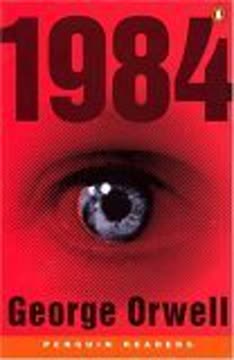
Download PDF
Download EPUB
.epub digital book format is ideal for reading ebooks on phones, tablets, and e-readers.
